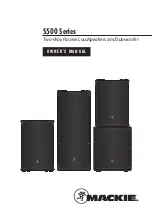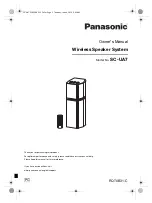
TECHNICAL DESCRIPTION
3 EN
EN
1.0
TECHNICAL DESCRIPTION
1.1
DESCRIPTION
The system consists of a modern direct current generator for the
welding of metals, developed via application of the inverter. This
special technology allows for the construction of compact light
weight generators with high performance. l’ts adjust ability, ef-
feciency and energy consumption make it an excellent work tool
suitable for coated electrode and GTAW (TIG) welding.
In addition to these characteristics this model has the VRD func-
tion. VRD stands for:
“Voltage Reduction Device”
. The VRD is
a risk reduction device for the welding unit that considerably re-
duces the risk of an electric shock from the secondary welding cir-
cuit. The VRD cuts off the power supply for welding and supplies
low voltage to the welding terminals in 0.01 seconds when the re-
sistance between the welding terminals is greater than 35 Ohm.
(welding ended).
The VRD switches on the power supply for welding when it de-
tects that the resistance between the welding terminals is less
than 35 Ohm (electrode contact).
The VRD automatically reduces the secondary circuit voltage be-
tween the welding terminals (less than 15 volts) when the unit is
not working.
2.0
TECHNICAL DATA - DATA PLATE
The machine can be connected to a motor generator of power
meeting the dataplate specifications and having the following
characteristics:
- Output voltage between 320 and 480 Vac.
- Frequency between 50 and 60 Hz.
IMPORTANT: MAKE SURE THE POWER SOURCE MEETS
THE ABOVE REQUISITES. EXCEEDING THE SPECIFIED
VOLTAGE CAN DAMAGE THE- WELDING MACHINE AND IN-
VALIDATE THE WARRANTY.
2.1
ACCESSORIES
Consult the area agents or the dealer.
2.2
DUTY CYCLE AND OVERHEATING
Duty cycle is the percentage of 10 minutes at 40°C ambient tem-
perature that the unit can weld at its rated output without overheat-
ing. If the unit overheats, the output stops and the over
temperature light comes On. To correct the situation, wait fifteen
minutes for unit to cool. Reduce amperage, voltage or duty cycle
before starting to weld again (See page IV).
2.3
VOLT - AMPERE CURVES
Volt-ampere curves show the maximum voltage and amperage
output capabilities of the welding power source. Curves of other
settings fall under curves shown (See page IV).
3.0
INSTALLATION
IMPORTANT: BEFORE CONNECTING, PREPARING OR US-
ING EQUIPMENT, READ THE SAFETY PRECAUTIONS.
3.1
CONNECTING THE POWER SOURCE TO THE MAINS ELEC-
TRICITY SUPPLY.
SERIOUS DAMAGE TO THE EQUIPMENT MAY RESULT IF
THE POWER SOURCE IS SWITCHED OFF DURING WELDING
OPERATIONS.
Check that the power socket is equipped with the fuse indicated in
the features label on the power source. All power source models
are designed to compensate power supply variations. For varia-
tions of +-10%, a welding current variation of +-0.2% is created.
ON - OFF SWITCH
This switch has two positions: ON = I and OFF = O.
3.2
HANDLING AND TRANSPORTING THE POWER SOURCE
OPERATOR SAFETY: WELDER’S HELMET - GLOWES -
SHOES WITH HIGH INSTEPS.
THE WELDING POWER SOURCE DO NOT WEIGHT MORE
THAN 25 KG AND CAN BE HANDLED BY THE OPERATOR.
READ WELL THE FOLLOWING PRECAUTIONS.
The machine is easy to lift, transport and handle, though the fol-
lowing procedures must always be observed:
1.
The operations mentioned above can be operated by the
handle on the power source.
2.
Always disconnect the power source and accessories from
main supply before lifting or handling operations.
3.
Do not drag, pull or lift equipment by the cables.
3.3
CONNECTION AND PREPARATION OF EQUIPMENT FOR
COATED ELECTRODE WELDING
• SWITCH OFF THE WELDING MACHINE BEFORE CARRYING
OUT THE CONNECTIONS.
Connect the welding accessories carefully in order to avoid power
losses. Carefully comply with the safety rules.
1.
Fit the required electrode on the electrode holder.
2.
Connect the earthing lead connector to the quick-release
negative terminal and the clamp near the welding zone.
3.
Connect the electrode holder connector to the quick-release
positive terminal.
4.
The connection of these two connectors thus made will result
in welding with straight polarity; reverse the connection to ob-
tain welding with reverse polarity.
5.
Switch the welding machine to electrode mode (Section 8).
6.
Adjust the welding current to the required value (Section12).
7.
Adjust the welding parameters (Hot Start and Arc Force) to
the required values (Section11).
8.
Remote control connection. To use the remote control, con-
nect the remote control connector to the socket on the front
panel. In this condition the current can be adjusted indepen-
dently of the setting made on the generator.
9.
Switch the generator on.
PRIMARY
Three phase supply
400 V
Frequency
50 Hz / 60 Hz
Effective consumption
9A
Maximum consumption
14 A
SECONDARY
Open circuit voltage
105 V
Open circuit voltage VRD
14 V
Welding current
5A ÷ 220 A
Duty cycle 40%
220 A
Duty cycle 60%
190 A
Duty cycle100%
150 A
Protection class
IP 23
Insulation class
H
Weight
Kg. 19
Dimensions
mm 250 x 470 x 450
European Standards
EN 60974.1 / EN 60974.10
BEFORE INSERTING THE MAINS
PLUG, IN ORDER TO AVOID THE FAIL
OF POWER SOURCE, CHECK IF THE
MAINS CORRESPONDS TO THE
WISHED MAIN SUPPLY.
Summary of Contents for CITOARC 2200 VRD
Page 91: ......





































